As consumers become more conscious about the products they use on their skin and the impact on the environment, the demand for certified organic soap has been on the rise. With a plethora of options available in the market, choosing a soap that is not only effective in cleansing but also safe and sustainable can be a daunting task.
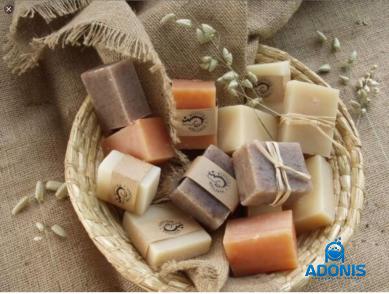
.
 Certified organic soap offers a solution to this dilemma, providing a natural and eco-friendly alternative to conventional soaps. What sets certified organic soap apart from regular soap is the process of certification and the ingredients used. In order to be certified organic, a soap must meet stringent criteria set by regulatory bodies like the USDA or other organic certification agencies. This means that the soap is made from ingredients that are grown and processed without the use of synthetic chemicals, pesticides, or genetically modified organisms. The production process also needs to adhere to strict guidelines to ensure that the final product is free from harmful additives and toxins. One of the main benefits of using certified organic soap is that it is gentle on the skin. Conventional soaps often contain harsh chemicals and fragrances that can strip the skin of its natural oils and cause irritation. Organic soap, on the other hand, is made from natural ingredients such as plant oils, essential oils, and botanical extracts that nourish and moisturize the skin, leaving it feeling soft and smooth. These ingredients are not only safe for the skin but also have therapeutic properties that can help with various skin conditions like dryness, eczema, and acne. In addition to being beneficial for the skin, certified organic soap is also better for the environment.
Certified organic soap offers a solution to this dilemma, providing a natural and eco-friendly alternative to conventional soaps. What sets certified organic soap apart from regular soap is the process of certification and the ingredients used. In order to be certified organic, a soap must meet stringent criteria set by regulatory bodies like the USDA or other organic certification agencies. This means that the soap is made from ingredients that are grown and processed without the use of synthetic chemicals, pesticides, or genetically modified organisms. The production process also needs to adhere to strict guidelines to ensure that the final product is free from harmful additives and toxins. One of the main benefits of using certified organic soap is that it is gentle on the skin. Conventional soaps often contain harsh chemicals and fragrances that can strip the skin of its natural oils and cause irritation. Organic soap, on the other hand, is made from natural ingredients such as plant oils, essential oils, and botanical extracts that nourish and moisturize the skin, leaving it feeling soft and smooth. These ingredients are not only safe for the skin but also have therapeutic properties that can help with various skin conditions like dryness, eczema, and acne. In addition to being beneficial for the skin, certified organic soap is also better for the environment.
..
 The production of organic soap involves sustainable farming practices that promote soil health, conserve water, and reduce pollution. By choosing organic soap, consumers can support ethical and eco-friendly practices that have a positive impact on the planet. Another important factor to consider when choosing a soap is its fragrance. Many conventional soaps use synthetic fragrances that can be overpowering and irritating to the senses. Certified organic soap, on the other hand, uses natural essential oils and botanical extracts to create gentle and pleasant scents that enhance the bathing experience. From refreshing citrus to calming lavender, organic soaps come in a variety of natural fragrances that cater to different preferences. Furthermore, the transparency and traceability of certified organic soap make it a reliable choice for consumers who value authenticity and quality. With organic certification, consumers can be assured that the soap they are using is made from pure and natural ingredients without any hidden toxins or contaminants. This level of transparency builds trust between the brand and the consumer, fostering a long-term relationship based on integrity and accountability. When it comes to choosing a sustainable and skin-friendly option for daily cleansing, certified organic soap stands out as a superior choice. With its commitment to quality, purity, and sustainability, organic soap offers a holistic approach to personal care that benefits both the individual and the environment. By making the switch to organic soap, consumers can enjoy a luxurious and nourishing bathing experience while supporting ethical and eco-friendly practices. Choose certified organic soap for a cleaner, greener, and healthier lifestyle. The benefits of certified organic soap go beyond just personal health and environmental impact.
The production of organic soap involves sustainable farming practices that promote soil health, conserve water, and reduce pollution. By choosing organic soap, consumers can support ethical and eco-friendly practices that have a positive impact on the planet. Another important factor to consider when choosing a soap is its fragrance. Many conventional soaps use synthetic fragrances that can be overpowering and irritating to the senses. Certified organic soap, on the other hand, uses natural essential oils and botanical extracts to create gentle and pleasant scents that enhance the bathing experience. From refreshing citrus to calming lavender, organic soaps come in a variety of natural fragrances that cater to different preferences. Furthermore, the transparency and traceability of certified organic soap make it a reliable choice for consumers who value authenticity and quality. With organic certification, consumers can be assured that the soap they are using is made from pure and natural ingredients without any hidden toxins or contaminants. This level of transparency builds trust between the brand and the consumer, fostering a long-term relationship based on integrity and accountability. When it comes to choosing a sustainable and skin-friendly option for daily cleansing, certified organic soap stands out as a superior choice. With its commitment to quality, purity, and sustainability, organic soap offers a holistic approach to personal care that benefits both the individual and the environment. By making the switch to organic soap, consumers can enjoy a luxurious and nourishing bathing experience while supporting ethical and eco-friendly practices. Choose certified organic soap for a cleaner, greener, and healthier lifestyle. The benefits of certified organic soap go beyond just personal health and environmental impact.
…
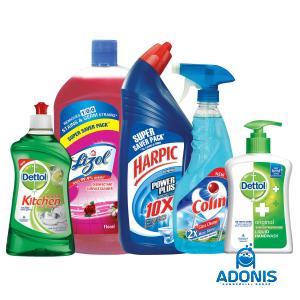 By choosing organic soap over conventional options, consumers are also supporting local farmers and small-scale producers who are dedicated to sustainable and ethical practices. These producers often source their ingredients locally, contributing to the growth of the community and promoting fair trade practices. Furthermore, certified organic soap is cruelty-free, meaning that it is not tested on animals. This aligns with the values of many consumers who are looking for products that are ethically produced and do not harm animals in the process. By opting for organic soap, consumers can rest assured that their purchase is in line with their values of compassion and respect for all living beings. In addition to its ethical and environmental benefits, certified organic soap also offers a luxurious and indulgent experience. The rich lather, soothing scents, and nourishing properties of organic soap elevate the daily cleansing routine into a self-care ritual. Whether it’s a relaxing bath after a long day or a refreshing shower in the morning, organic soap transforms an everyday chore into a pampering treat for the senses. Moreover, organic soap is suitable for all skin types, including sensitive and allergy-prone skin. The gentle and natural ingredients used in organic soap are less likely to cause irritation or allergic reactions, making it a safe choice for those with delicate skin. Whether you have dry, oily, combination, or acne-prone skin, certified organic soap can help maintain the skin’s balance and health without stripping it of its natural protective barrier. For those concerned about the environmental impact of their personal care products, certified organic soap offers a sustainable alternative that reduces their carbon footprint. The ingredients used in organic soap are grown and processed using eco-friendly methods that prioritize soil health, water conservation, and biodiversity. By supporting organic agriculture, consumers are contributing to a cleaner and healthier planet for future generations. In conclusion, certified organic soap is not just a cleansing product; it is a symbol of a conscious lifestyle choice that prioritizes health, sustainability, and ethical values. By choosing organic soap, consumers can enjoy a luxurious bathing experience while supporting small-scale producers, protecting the environment, and promoting animal welfare. Make the switch to certified organic soap today and indulge in a soap that is not only good for your skin but also good for the planet.
By choosing organic soap over conventional options, consumers are also supporting local farmers and small-scale producers who are dedicated to sustainable and ethical practices. These producers often source their ingredients locally, contributing to the growth of the community and promoting fair trade practices. Furthermore, certified organic soap is cruelty-free, meaning that it is not tested on animals. This aligns with the values of many consumers who are looking for products that are ethically produced and do not harm animals in the process. By opting for organic soap, consumers can rest assured that their purchase is in line with their values of compassion and respect for all living beings. In addition to its ethical and environmental benefits, certified organic soap also offers a luxurious and indulgent experience. The rich lather, soothing scents, and nourishing properties of organic soap elevate the daily cleansing routine into a self-care ritual. Whether it’s a relaxing bath after a long day or a refreshing shower in the morning, organic soap transforms an everyday chore into a pampering treat for the senses. Moreover, organic soap is suitable for all skin types, including sensitive and allergy-prone skin. The gentle and natural ingredients used in organic soap are less likely to cause irritation or allergic reactions, making it a safe choice for those with delicate skin. Whether you have dry, oily, combination, or acne-prone skin, certified organic soap can help maintain the skin’s balance and health without stripping it of its natural protective barrier. For those concerned about the environmental impact of their personal care products, certified organic soap offers a sustainable alternative that reduces their carbon footprint. The ingredients used in organic soap are grown and processed using eco-friendly methods that prioritize soil health, water conservation, and biodiversity. By supporting organic agriculture, consumers are contributing to a cleaner and healthier planet for future generations. In conclusion, certified organic soap is not just a cleansing product; it is a symbol of a conscious lifestyle choice that prioritizes health, sustainability, and ethical values. By choosing organic soap, consumers can enjoy a luxurious bathing experience while supporting small-scale producers, protecting the environment, and promoting animal welfare. Make the switch to certified organic soap today and indulge in a soap that is not only good for your skin but also good for the planet.






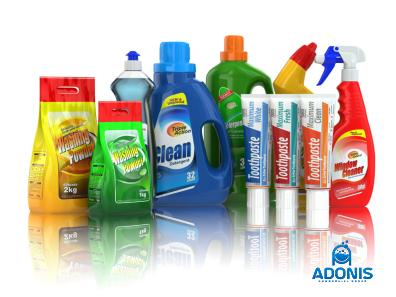
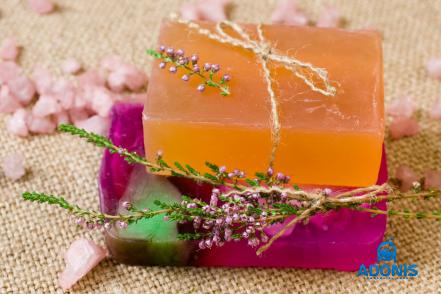
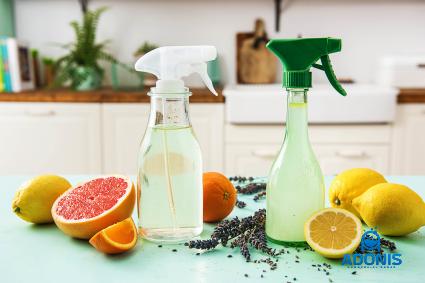
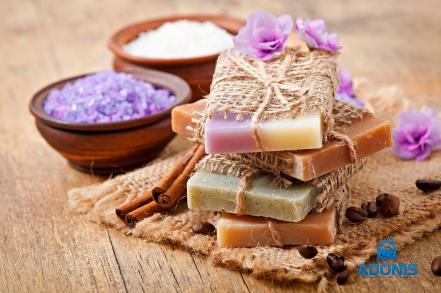
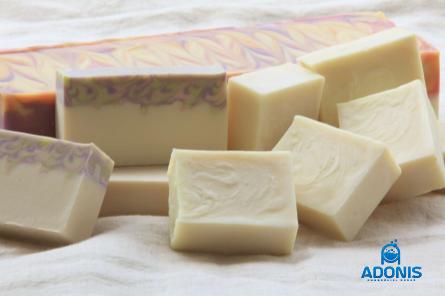
Your comment submitted.